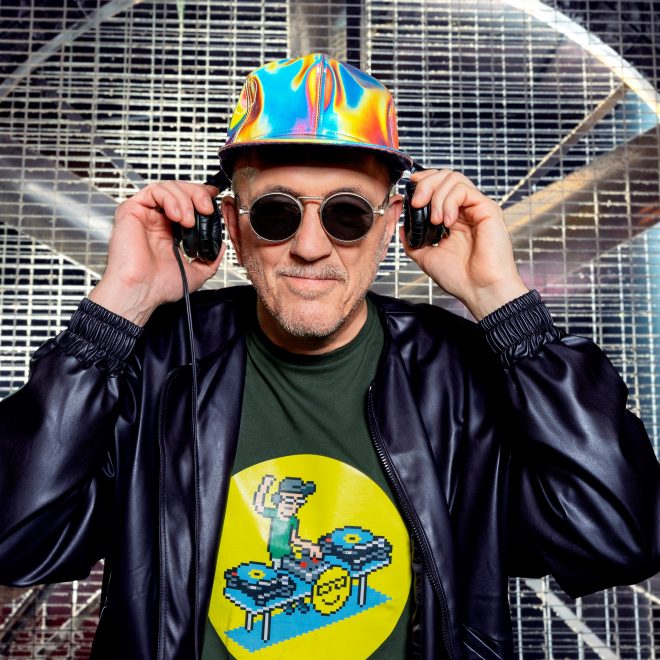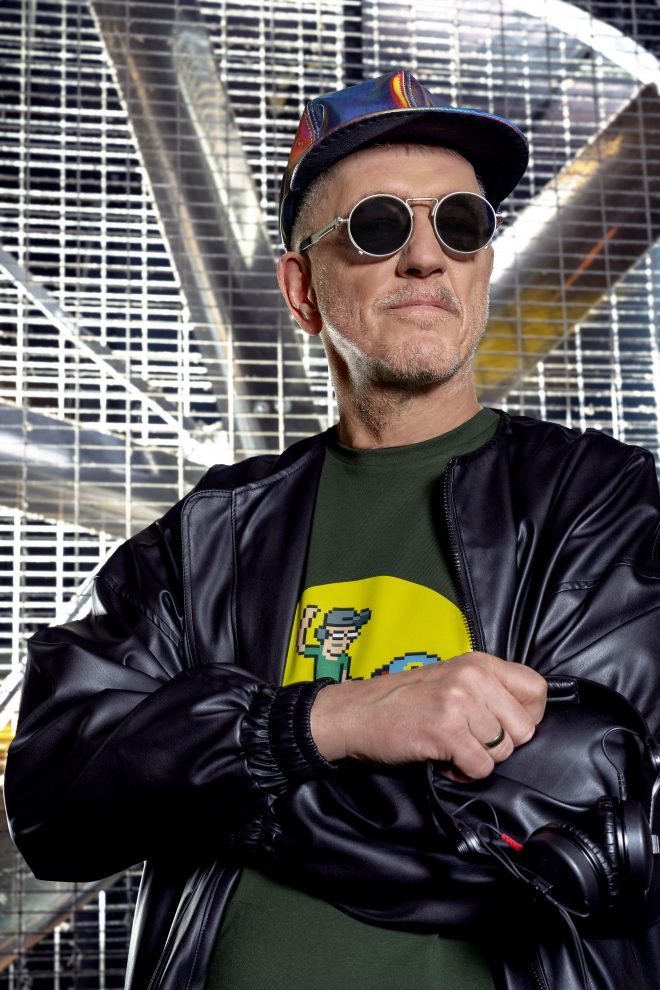Dr. Motte: 40 Years of techno, Tolerance, and Transformation
“Be yourself. Don't believe the hype. Be authentic.”

If anyone in electronic music truly deserves the word legend, it’s Dr. Motte. For four decades, the Berlin-born DJ, producer and cultural pioneer has been shaping not only sound but spirit, standing at the intersection of music, activism and community.
He’s best known as the founder of the Love Parade, which began in 1989 as a small political demonstration with a handful of ravers and quickly grew into the largest dance music event the world had ever seen, peaking in 1999 with an astonishing 1.5 million people dancing through the streets of Berlin.
But for Dr. Motte, it was never just about throwing a rave. It was about creating a space where people could come together, express themselves freely and feel part of something bigger. That vision still drives him today.
In 2019, he launched Rave The Planet: a new parade with a clear message: techno is culture, and it deserves to be recognized and protected as such. Through his non-profit initiative, he helped get Berlin’s techno scene officially listed as intangible cultural heritage by the German UNESCO Commission. A major step in preserving the roots and relevance of electronic music.
Behind the decks, Dr. Motte is just as compelling. His DJ sets are known for being unpredictable, high-energy, and deeply immersive - taking the crowd on a journey through the depths of the techno cosmos. Whether it’s an underground club or a Boiler Room stream, his sets feel like transmissions from a parallel dimension: raw, uplifting, and always evolving.
What makes Dr. Motte unique is how consistent he’s stayed in his values. Decades into his career, he’s still pushing for justice, connection, and artistic freedom, on the dancefloor and beyond. This year, as he marks 40 years as a DJ, we sat down with the man who helped techno become what it is today — to talk about history, activism, and why love, music and curiosity are still the most powerful tools we have.

2025 marks 40 years of you being behind the decks. When you look back to your early sets in West Berlin, did you ever imagine that techno—and your own journey—would become such a global force?
At the age of 27 I could not imagine that I would still be a DJ at the age of 40… I always try to be in the here and now. I’ve always been a colourful dog in berlin. I’ve always done my thing. I had a small inkling of something big in the vision of the Love Parade in berlin in 1989. the vision was that at some point there will be a love parade in every country. everyone will dance there and they could then have a realization that they are all part of the family of people on this planet. that could then bring about world peace.
You've always emphasized that techno is more than music — it’s a movement. In a world full of distractions and commercial noise, how do we protect that message?
We can protect it by gaining acceptance in society. UNESCO itself has already recognized dance as a cultural heritage. With Rave the Planet in Berlin, we have managed to get Berlin's techno culture listed as an intangible cultural heritage by the German UNESCO. This is about preserving an urban electronic music and dance culture so that it can continue to be experienced.
We need to talk more with each other and not about each other. It is also very important that laws and governments serve justice. This applies to all people, including those who have developed their own culture over the past 35 years and want to continue living in this way.
With Rave The Planet in Berlin you're once again combining electronic music with a strong social and political voice. What's the core mission behind this parade and movement?
The name says it all. We simply want to continue to tell the good story and the spirit of Berlin's techno culture. For many people, this is a counter-model to the normal world of everyday life. In the field of techno music, you can be who you really want to be.
The music helps you to transform everything and to let it go and then you don't have to do anything anymore. You can be free and be happy. Everyone in their own way. That's really it. And we would like to show that with the Rave the Planet Parade every year, how beautiful and diverse this culture is. We need more like this everywhere.
Berlin remains a mecca for electronic music, but it's also gentrifying fast. Do you think the spirit of the city's early underground can survive the pressure of commercialization?
Unfortunately, many authorities in Berlin still don't understand how important this kind of culture is for Berlin and its people. We could look to Amsterdam. There is a good exchange between politics and culture makers and collectives.
In this way, you could say that in Amsterdam, politics is there for culture too. Not only "high culture“. In Berlin, instead, a highway is being driven through the city and it doesn't matter how much it costs and whether it does the city any good or not, but there is no interest in offering the affected cultural venues an adequate replacement or stopping the construction of the A100 highway.
Unfortunately, taxpayers’ money is going to the construction industry because of old contracts from 1958, which is unjust. It feels like the club culture in Berlin Germany and other countries like UK have no lobby. This is not fair at all.
Looking at your own DJ sets today, how do you balance nostalgia and innovation? Do you still find the same joy in selecting tracks as you did in the ’80s & ‘90s?
There's so much good new music out there. I’m not that romantic and techno music wasn't either. Always playing tracks you already know is boring for me. I never wanted to be like my parents. My whole life I’ve always been curious about new music. Thank you, John Peel, for doing what you have done. I love a challenge. I listened to jazz as a teenager. I was punk in the late 1970s and was active in the Berlin underground scene. I’ve been a pro DJ since 1985. I’ve played everything there is to dance too.
I’ve always listened to the music itself to find the next fitting piece of music or a counterpoint to it. I have so much music in me and I’m still looking every week to see what new music is out there. My favourite place to do this is on Bandcamp because it's one of the platforms that has a fair music trade philosophy and where artists are paid fairly, even though Bandcamp has been sold twice recently and is now owned by Songtradr. I always have a longing in me, even when I play music for people, for fulfilment through music in the here and now.
You’ve seen many generations come and go on the dance floor. What has techno taught you about people—and about yourself?
We are all music lover and we love to dance to good music like a family in peace and harmony. There is something deep inside of me. We are one family and music is the key. Love is the message. Our future is now.
If you could send one message to the next generation of ravers, DJs and cultural activists, what would it be?
Be yourself. Don't believe the hype. Be part of the selfie revolution and look inside and discover what is there. Not on your phone. Feel your emotions. Listen to your inner child and what emotions want to tell you. Be authentic. Not a trend someone told you, you have to be. Start to play a real instrument. Any instrument you like. At least 30 minutes every day. With this you will grow. With this you will find a good way to yourself and your own identity. This is what it is about. Not social media hype. Not Money. Not fame. Be a good human. Frank Zappa once said: Two things are important.
Never stop and always keep going.
https://www.instagram.com/dr_motte
https://www.instagram.com/ravetheplanet


